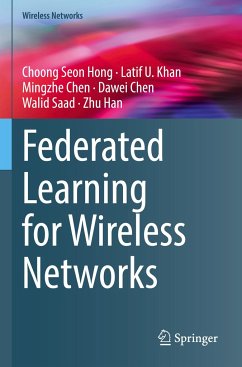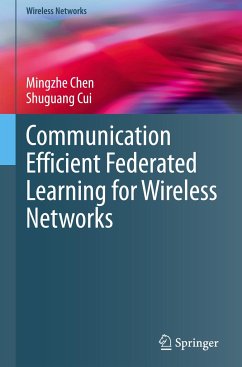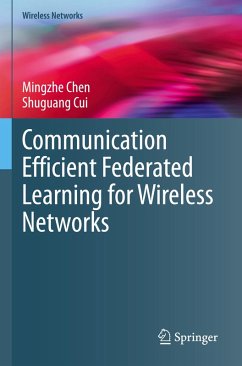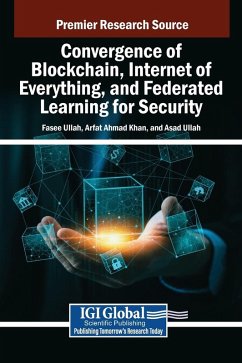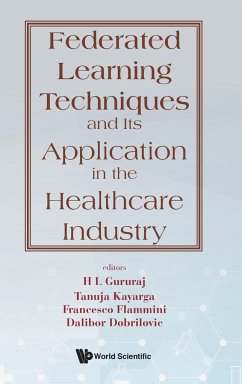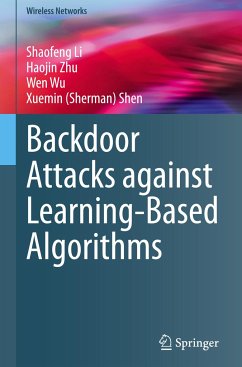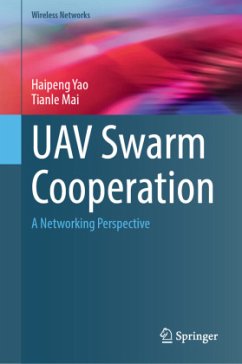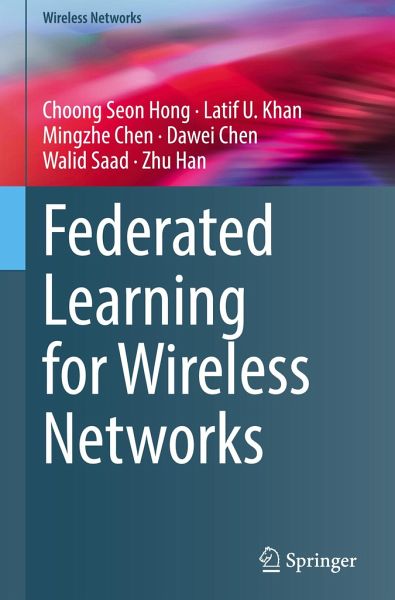
Federated Learning for Wireless Networks
Versandkostenfrei!
Versandfertig in 6-10 Tagen
121,99 €
inkl. MwSt.
Weitere Ausgaben:

PAYBACK Punkte
61 °P sammeln!
Recently machine learning schemes have attained significant attention as key enablers for next-generation wireless systems. Currently, wireless systems are mostly using machine learning schemes that are based on centralizing the training and inference processes by migrating the end-devices data to a third party centralized location. However, these schemes lead to end-devices privacy leakage. To address these issues, one can use a distributed machine learning at network edge. In this context, federated learning (FL) is one of most important distributed learning algorithm, allowing devices to tr...
Recently machine learning schemes have attained significant attention as key enablers for next-generation wireless systems. Currently, wireless systems are mostly using machine learning schemes that are based on centralizing the training and inference processes by migrating the end-devices data to a third party centralized location. However, these schemes lead to end-devices privacy leakage. To address these issues, one can use a distributed machine learning at network edge. In this context, federated learning (FL) is one of most important distributed learning algorithm, allowing devices to train a shared machine learning model while keeping data locally. However, applying FL in wireless networks and optimizing the performance involves a range of research topics. For example, in FL, training machine learning models require communication between wireless devices and edge servers via wireless links. Therefore, wireless impairments such as uncertainties among wireless channel states, interference, and noise significantly affect the performance of FL. On the other hand, federated-reinforcement learning leverages distributed computation power and data to solve complex optimization problems that arise in various use cases, such as interference alignment, resource management, clustering, and network control. Traditionally, FL makes the assumption that edge devices will unconditionally participate in the tasks when invited, which is not practical in reality due to the cost of model training. As such, building incentive mechanisms is indispensable for FL networks.
This book provides a comprehensive overview of FL for wireless networks. It is divided into three main parts: The first part briefly discusses the fundamentals of FL for wireless networks, while the second part comprehensively examines the design and analysis of wireless FL, covering resource optimization, incentive mechanism, security and privacy. It also presents several solutions based on optimizationtheory, graph theory, and game theory to optimize the performance of federated learning in wireless networks. Lastly, the third part describes several applications of FL in wireless networks.
This book provides a comprehensive overview of FL for wireless networks. It is divided into three main parts: The first part briefly discusses the fundamentals of FL for wireless networks, while the second part comprehensively examines the design and analysis of wireless FL, covering resource optimization, incentive mechanism, security and privacy. It also presents several solutions based on optimizationtheory, graph theory, and game theory to optimize the performance of federated learning in wireless networks. Lastly, the third part describes several applications of FL in wireless networks.



